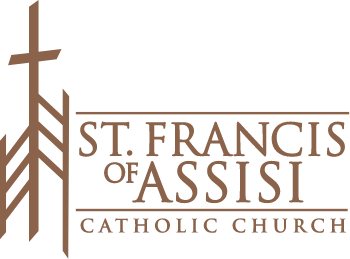Easter stands as the pinnacle of the liturgical calendar, celebrating the Resurrection of Jesus Christ. This sacred season calls us to plunge into the vastness of God’s mercy, it is interwoven within our worship, sacramental rites, and particularly evident in the transformative journey undertaken by the Elect through the Order of Christian Initiation of Adults (OCIA). It offers a period of spiritual renewal and extends an invitation to everyone – both the Elect and the faithful – to deeply engage with the profound reality of divine mercy. This powerful force of mercy wrapped in love and forgiveness has the capacity to mend hearts, alter lives, and save souls.
“The Lord’s acts of mercy are not exhausted, his compassion is not spent; They are renewed each morning – great is your faithfulness!” (Lamentations 3:22-23)
God’s interaction with humanity is characterized by His boundless mercy – a message consistently underscored throughout Scripture and Church teachings. Mercy, as revealed in the life, death, and resurrection of Jesus Christ, represents God’s loving response to our vulnerabilities and failings. “For God so loved the world that he gave his only Son, so that everyone who believes in him might not perish but might have eternal life.” (John 3:16) Mercy as such transcends mere abstraction, manifesting rather as a tangible and dynamic Person who fosters conversion, renewal, and spiritual growth. For the Elect, their journey towards the Easter Vigil encapsulates a testament to this divine encounter of God’s mercy. It’s a modern-day pilgrimage from the captivity of sin to the freedom bestowed upon the children of God, guided by His compassionate hand. Their path, marked by prayer, education, reflection, transformation, and sincere conversion, mirrors the biblical exodus of Israel, embodying the Church’s mission to extend God’s mercy to every soul.
“So he got up and went back to his father. While he was still a long way off, his father caught sight of him, and was filled with compassion. He ran to his son, embraced him and kissed him. His son said to him, ‘Father, I have sinned against heaven and against you; I no longer deserve to be called your son.’ But his father ordered his servants, ‘Quickly bring the finest robe and put it on him; put a ring on his finger and sandals on his feet. Take the fattened calf and slaughter it. Then let us celebrate with a feast, because this son of mine was dead, and has come to life again; he was lost, and has been found.’ Then the celebration began.” (Luke 15:20-24)
The message of God’s mercy is intricately woven throughout Scripture, demonstrating God’s enduring patience and forgiveness from the Old Testament to the New. The Parable of the Prodigal Son stands as a striking testament to divine mercy, portraying a father’s boundless love and acceptance, alongside the forgiveness offered to repentant sinners. It is reassuring for us that if we genuinely regret our sins and seek forgiveness, the depths of God’s mercy is unfathomable. Alongside Jesus’ compassionate appeal from the cross, these stories underscore the immense capacity for forgiveness to which we are all invited to partake and share. Such tales echo among the Elect and the broader faith community, serving as reminders of the transformative joy and hope accessible to every contrite spirit. The Father’s love is unconditional, not based on our holiness or perfection but rooted in the very nature of God as Love. This perfect love knows only the act of loving His creation unconditionally. In turn, our response to His boundless love is to approach Him with a heart of repentant love, reflecting our gratitude and reverence for His divine mercy.
O truly necessary sin of Adam,
destroyed completely by the Death of Christ!
O happy fault
that earned so great, so glorious a Redeemer! (The Exsultet)
During the Easter Vigil, we will hear the melodious proclamation of Easter through The Exsultet. This exquisite prayer resounds with the exultant joy of Easter with its poetic words. Within its verses lies a remarkable notion: the ancient sin of Adam is portrayed as a paradoxical blessing for humanity, for it paved the way for our redemption by our glorious Savior – O happy fault, indeed! With the advent of this glorious Savior, the liturgical and sacramental life of the Church blossoms forth. Once more, the Easter Vigil stands as a testament to the reality of mercy, marking the moment when the Elect are fully welcomed into the Church through the Sacraments of Baptism, Confirmation, and Eucharist. This sacred celebration, adorned with rich symbols of light and new life, signifies an encounter with divine grace. Following Easter, Divine Mercy Sunday emerges as a poignant reminder of the boundless scope of God’s mercy, offering a special opportunity for reflection, reconciliation, and renewal. For the newly initiated, these moments symbolize the inception of a new life in Christ, deeply rooted in the firsthand experience of divine mercy they have encountered.
“For I was hungry and you gave me food, I was thirsty and you gave me drink, a stranger and you welcomed me, naked and you clothed me, ill and you cared for me, in prison and you visited me.” (Matthew 25:35-36)
The invitation to embrace God’s mercy extends beyond Easter, calling the Elect and the entire faith community to manifest this mercy in daily life. Through acts of mercy, forgiveness, and solidarity, we embody the concrete expressions of divine mercy. Participation in works of mercy, communal prayers like the Chaplet of Divine Mercy, and fostering an environment of welcome and forgiveness are practical ways in which God’s mercy is made manifest in our world. These actions not only reflect our personal experiences of God’s mercy but also serve as a testament to the transformative power of divine love in action. As Catholics, being configured to Christ entails embodying the same merciful nature that God has extended towards humanity. This involves engaging in both corporal and spiritual works of mercy as a tangible expression of our faith. Lastly, let us extend a warm and joyful welcome to the newest members of St. Francis of Assisi parish, embracing them with open arms and genuine hospitality.
Conclusion: Embracing God’s Mercy in Action
In the journey through Easter and the transformative experience of OCIA, we are reminded of the profound reality of God’s mercy. This divine mercy, woven throughout Scripture, Church teachings, and sacramental life, is not merely a theological concept but a living Person who calls us to conversion, renewal, and compassion.
As we immerse ourselves in the liturgical celebrations of Easter, particularly during the Easter Vigil where we hear the resounding proclamation of The Exsultet, we are invited to reflect on the paradoxical beauty of humanity’s redemption through the fault of Adam. This joyful fault, earning for us our glorious Redeemer, speaks volumes about the depths of God’s mercy. Moreover, as we witness the initiation of the Elect into the Church through the sacraments of Baptism, Confirmation, and Eucharist, we witness firsthand the transformative power of divine grace. These sacred moments mark the beginning of a new life in Christ, rooted in the personal encounter with divine mercy.
Our faith calls us to embody God’s mercy in our daily lives. Through corporal and spiritual acts of mercy, we become instruments of God’s love and agents of His mercy in the world. In welcoming the newly initiated members of St. Francis of Assisi parish with warmth and joy, we extend the same hospitality and love that God showers upon us. Together, as a faith community rooted in the mercy of God, let us continue to journey forward, embracing God’s mercy in action, and sharing His love with all whom we encounter.
Jeremy Lezniak — SFA Theologians Guild Member

